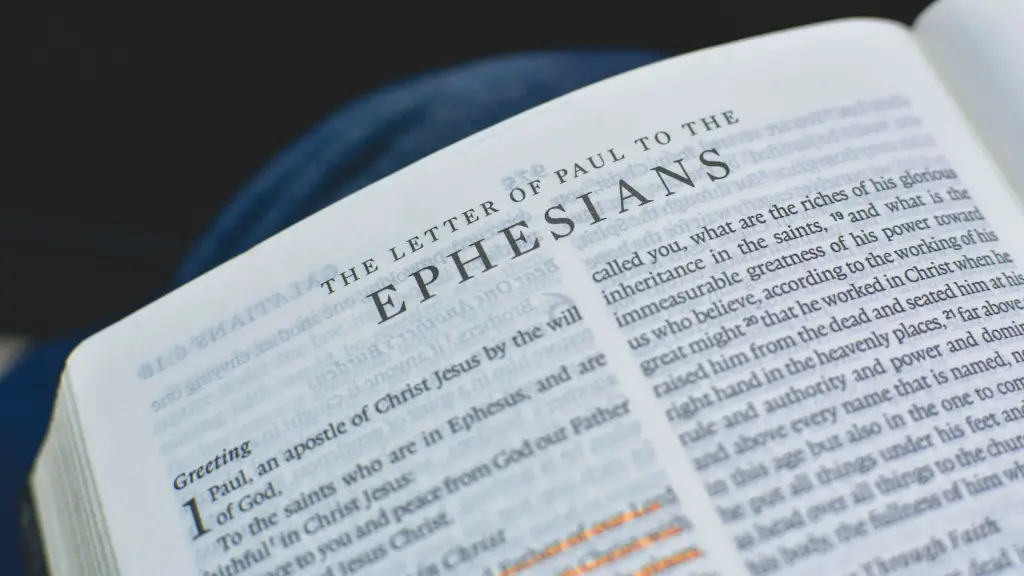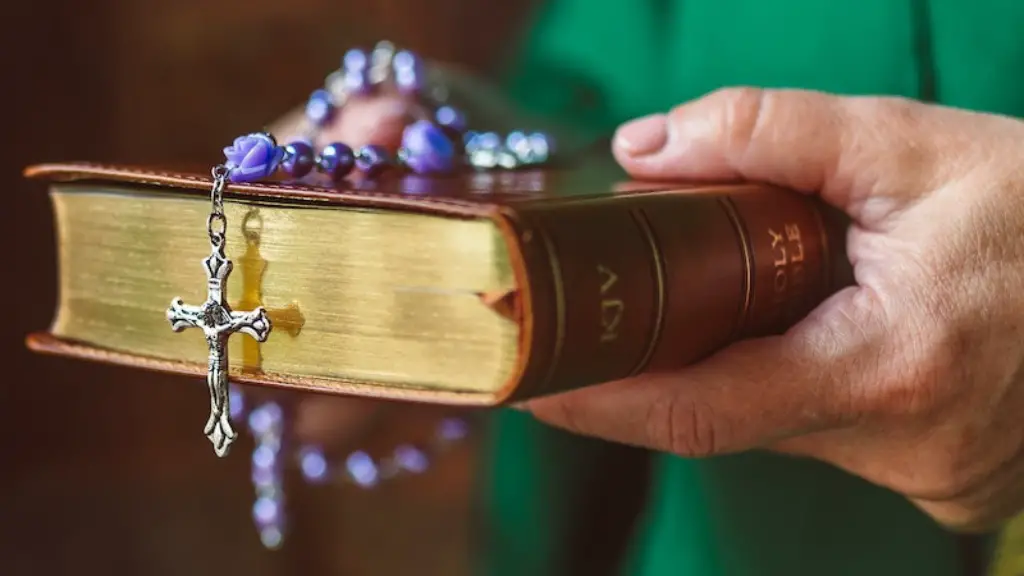What does stewardship mean in the Bible? The concept of stewardship is found throughout the Bible and is a fundamental part of the Christian faith. Bible stewardship is defined as being keenly and responsibly managing gifts, resources, and time given by God. Stewardship is a commitment to use all that God has entrusted to us in ways that honor and glorify Him.
The Bible has many references to stewardship. In the book of Genesis, God creates the world and places humans in it to be His stewards. In the book of Colossians 3:23-24, we read, “Whatever you do, work at it with all your heart, as working for the Lord, not for human masters, since you know that you will receive an inheritance from the Lord as a reward. It is the Lord Christ you are serving.” In the parable of the talents in the book of Matthew, Jesus teaches us to use the resources He has given us wisely and diligently. In the Old Testament, God admonishes people to take care of the land they have been given and to treat each other with respect and generosity.
Stewardship can have different forms, the most common ones being financial and environmental. Financial stewardship entails overseeing and managing the resources we are given such as our money and material possessions. This includes spending and saving money in a way that honors God. Environmental stewardship involves being mindful of the earth and the environment, as well as reducing our carbon footprint. Additionally, stewardship includes managing our time and talents in order to use them in the best way possible. Stewardship involves having an attitude of service, humility, and generosity.
One of the most important aspects of stewardship is that it is based on faith. Believers are asked to take risks and trust in God, knowing that He will provide for them. Stewardship also involves making decisions that reflect our faith in God. This means we must be willing to step out in faith and make choices that honor God, even if these decisions are difficult or make us uncomfortable.
Stewardship isn’t just a concept or an idea, it’s a lifestyle. It’s an attitude and outlook we have each day as we make decisions and interact with the world around us. It’s our responsibility to be good stewards of all that God has given us. This means being mindful of our actions and making sure we are using our resources in a way that honors God. As we do this, we can be confident that God will bless our efforts and lead us in the right direction.
Stewardship and Success
In the Bible, success is often measured by how faithfully and faithfully we manage the resources we have been given. Proverbs 21:20 states, “The wise in heart are called discerning, and pleasant words promote instruction.” In other words, success comes from applying wisdom in managing our resources. This means that our attitudes and decisions should reflect our faith in God, not our own desires or goals.
Additionally, the Bible teaches that God blesses those who are faithful stewards. In Malachi 3:10, we read, “Bring the whole tithe into the storehouse, that there may be food in my house. Test me in this,” says the Lord Almighty, “and see if I will not throw open the floodgates of heaven and pour out so much blessing that there will not be room enough to store it.” This passage is a reminder that if we are faithful in our stewardship, God will bless us with abundance.
This doesn’t mean that Christian stewardship always results in success in the conventional sense. For example, a faithful steward may be living in poverty or facing difficult circumstances, yet still honoring God and using the resources he or she has in a way that is pleasing to God. In these cases, God’s blessing can manifest in different forms such as peace, joy, contentment and all the spiritual blessings associated with Christ.
Stewardship and Mercy
God wants us to be good stewards of the resources He has given us, but He also asks us to be generous and show mercy to others. The Bible says in Proverbs 19:17, “Whoever is kind to the poor lends to the Lord, and he will reward them for what they have done.” God calls us to give generously and not just to use stewardship as a means to amass wealth.
The Bible also teaches us to be compassionate to others who are in need. In Deuteronomy 24:19, we read, “When you are harvesting in your field and you overlook a sheaf, do not go back to get it. Leave it for the foreigner, the fatherless and the widow, so that the Lord your God may bless you in all the work of your hands.” This is a reminder that when we are given resources, we ought to use them wisely, but also to share with others in need.
Being a good steward is about more than managing resources. It’s about being kind, generous, and showing mercy to those who are less fortunate. God wants us to take what He has given us and use it to bless and help others. In doing so, we are showing love to our fellow humans and glorifying God at the same time.
Stewardship and Spending
The Bible teaches us to develop healthy financial habits and to use our money in a way that honors God. In Deuteronomy 29:9, we read, “Carefully follow the terms of this covenant, so that you may prosper in all you do.” This verse emphasizes the importance of wise financial planning and using our resources in a way that benefits us. What does this mean practically? It means using our money to invest in blessing others, rather than using it for frivolous things and fleeting pleasures.
The Bible also has some clear instructions on how not to use our money. This includes avoiding debt, being content with what we’ve been given, and practicing self-control when it comes to spending and buying things. We should also practice generosity and giving, and use our money to build the Kingdom of God. This can be done in a variety of ways such as giving to charities or other causes, or investing in churches, families, and communities.
Being a good steward also means creating a budget and developing a spending plan.This means setting aside money to use as an emergency fund, creating a plan for how you will use your money, and living within your means. This is an important part of financial stewardship and being a good steward of the resources God has given us.
Stewardship and Accountability
Stewardship is ultimately about accountability. We are responsible for managing the resources God has entrusted to us, and we will be held accountable for how we use these resources. The Bible tells us in Romans 14:12, “So then, each of us will give an account of ourselves to God.” This verse reminds us that all of our decisions and actions will have consequences and we will be held accountable for them.
We should also be accountable to ourselves and use the resources God has given us in ways that are pleasing to Him. This means examining our motives and asking God to help us use whatever resources He has given us in ways that honor and glorify Him.
Good stewardship is ultimately about giving God the glory and using the resources we have been given to bless and serve others. This can be done both in practical ways, such as volunteering, giving to charities, and using our resources wisely, but it also involves developing an attitude of generosity and selflessness. When we view our resources through the lens of stewardship, it gives us a greater sense of appreciation for all that God has given us and how we can use it to honor and glorify Him.
Stewardship and Love
The Bible teaches us that stewardship is an expression of love. In John 15:12, Jesus tells us, “This is my commandment, that you love one another as I have loved you.” God calls us to love Him and to show this love in tangible, practical ways. Loving God includes showing appreciation and thankfulness for all He has done, and this includes being careful with the resources He has given us.
In 1 Corinthians 16:14, Paul tells us “Let all that you do be done in love.” Loving God and others involves using our resources in ways that glorify Him, rather than seeking our own desires or goals. This could mean using our time and money to bless those in need, or using our talents and abilities to help build the Kingdom of God.
Loving one another means looking for ways to be a blessing and to honor God with our resources. It means being generous and giving out of our abundance, and it also means being content with what we have. Ultimately, being a good steward is an act of love, both to God and to others.
Stewardship and Transformation
Stewardship is ultimately about transformation. We are called to be good stewards of the resources God has given us and to use them to honor Him and bless others. As we do this, we can experience transformation in our hearts and minds, as well as in our relationships and communities. We can be empowered to do great things for God and to use our resources in ways that will make an eternal impact.
As we practice good stewardship in our lives, God can use us to bring about change and make a lasting difference. We can be beacons of light in the darkness and live lives of purpose, faithfulness, and impact. We can be used to bring about healing and restoration to our broken world and to show others a glimpse of the kind of life we can experience when we are faithful stewards of all that God has entrusted to us.





